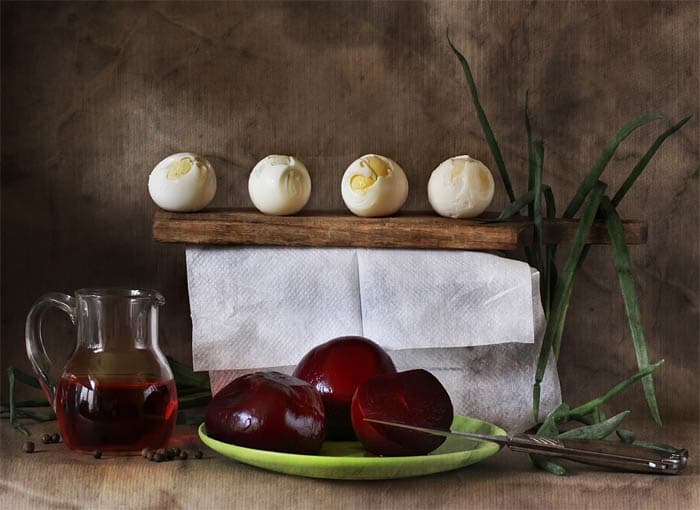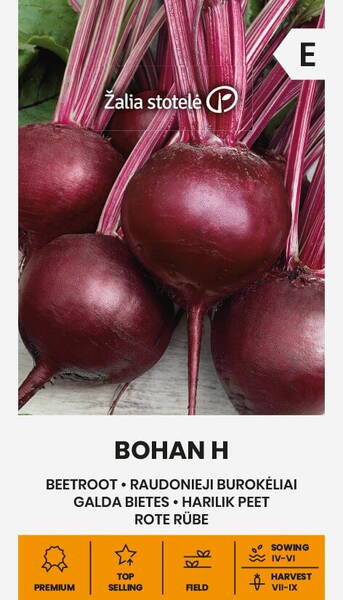Ex Tax: 1.25€
Large, juicy, with sweet flesh!
Mid-early, high-yielding hybrid. Vegetation period – 117 days from germination. The root crop is round, smooth, red; the flesh is dark red, without rings, sweet. Excellent taste qualities.
Well suited for long-term storage. Tolerates moisture deficit well and is resistant to Cercospora leaf spot.
Stable yield and marketability, cold resistance, resistance to bolting, uniformity of roots, suitability for canning, and good keeping quality make this hybrid variety very popular.
1.0 g = 40-55 seeds.

* Compared to other vegetable plants, beets are relatively drought-resistant. But there are two periods when they especially need moisture.
1. During seed germination and rooting. Often in May, the weather is hot and dry, and the topsoil dries out. Pre-sowing watering is necessary.
2. During intensive leaf growth (late July - early August). The more powerful the leaves, the higher the yield.
Sowing. Sow from late April to June. Winter sowing is also possible. The soil is dug shallowly - 12-15 cm. It is better not to apply fresh manure, as this deteriorates the taste of the root crop, foliage grows excessively, and roots store poorly.
For an early harvest, the seedling method is effective (sowing 30-35 days before planting). Beets tolerate pricking out well (it is important not to cover the apical bud and not to bend the root). Plant seedlings after frost. This gives a harvest 3-4 weeks earlier.
To accelerate germination, seeds are soaked for 12 hours in warm water.
Spacing: 40-50 cm between rows, 6-8 cm between plants. Depth: 3-4 cm on light soils, 2-3 cm on heavy ones.
Care: First thinning when a pair of true leaves appears (3-4 cm between plants), second - after 2-3 weeks (6-8 cm). Loosening and watering.
* Scientific research has confirmed the high healing properties of red beet.
It has been established that fiber and biogenic acids in beets enhance intestinal peristalsis, betaine promotes protein absorption and improves liver cell activity. Recommended for chronic constipation and liver diseases (boiled, on an empty stomach, 100-150 g per day).
Beet juice (especially mixed with carrot juice) helps with anemia and improves metabolism. Mixed with honey, it is used for hypertension. The content of iodine and magnesium makes beets essential for the elderly.
Anti-cancer properties. Studies have shown that anthocyanins in red beets are capable of stopping the development of cancer cells. Beets act 8 times more effectively than other plants with anthocyanins. Fresh juice is 3 times more effective than boiled. Tip: freshly squeezed juice is best kept in the refrigerator for 3 hours before consumption for better absorption.
Beets also help in case of radiation injuries - they remove radioactive substances and heavy metals (lead, mercury) from the body. Boiled beets retain this ability.















